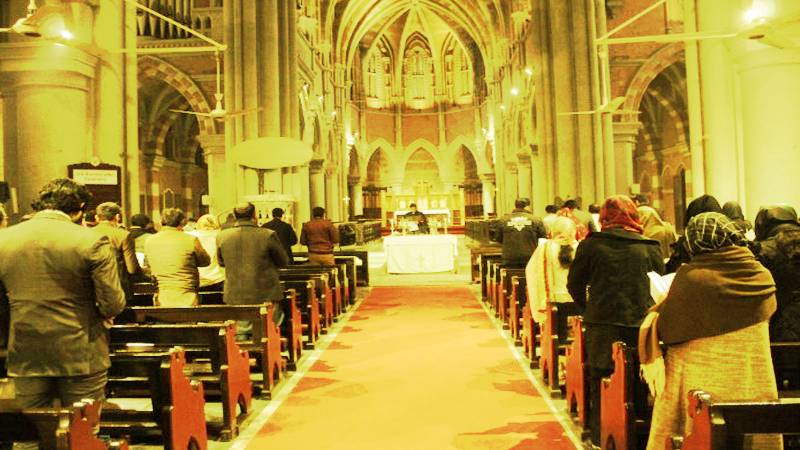
The Ecumenical Commission for Human Development (ECHD) joined mainstream churches in observing the “Week of Prayer for Christian Unity,” which was attended by Christian youth in three diocesan areas of Lahore, Faisalabad, and Multan.
While addressing more than 109 Christian youth members of diverse Christian backgrounds and 12 clergy members of the Church of Pakistan, Roman Catholic, Evangelical, and Presbyterian Churches at the Cathedral Church of the Resurrection in Lahore on Monday, Masihi Isha’at Khana General Manager Peter Calvin said that United Nations member countries spend millions of dollars to unite the global world but have failed in achieving this goal, adding that world leaders have to take decisions to halt wars in Gaza and Ukraine.
Similar prayers were organized by ECHD at Saint Peter's Church of Pakistan in Faisalabad and at Saint Mary’s Church of Pakistan in Muzaffargarh.
The theme of a week-long prayer service for 2024, “You shall love the Lord your God and your neighbor as yourself,” is taken from the Gospel of Luke. Every year, the pastors, priests, and bishops of Pakistan hold joint prayers, hymns, candle lightings, and ecumenical meals in different churches during the Unity Octave that is observed from January 18–25, lasting eight days.
The internationally observed effort first started in 1908 under the leadership of Father Paul Wattson.
“The theme selected this year reflects the connection between love of God and love of neighbor, with a particular concern for challenging the boundaries of who is considered a neighbor,” said James Rehmat, Executive Director, ECHD.
“It is a call for charity, mercy, justice, and unity, especially in Pakistan, where Christians face intolerance as a minority group. We lack the strength necessary to advocate for our rights, effectively bargain with government officials, and become both socially and politically important. Church leaders must find a means to end the schism and quiet within,” he added.

